Dialogues on the Future of Work in the Global South: Building narratives from the Middle East and North Africa
FromJul 26, 2021 To Jul 28, 2021
Online Webinar
Why a Global South perspective on the Future of Work
Artificial Intelligence and other advanced ICTs are dramatically changing the way we produce, consume, and trade. What threats, challenges, and opportunities does this new industrial revolution pose for the world of work?
At a global level, a narrative aiming to answer this question is gaining attention in academic and policy circles. According to this view, technology has started and will continue to enable the automation of routine-based jobs but will, at the same time, create new job opportunities where workers use skills that complement the power of these technologies. If history is any guide, workers’ skills and institutions would adapt to the new conditions, fuelling economic growth and net job creation.
The history of technological innovation and jobs in the Global South tells a different, more complex story; one that may include lags in technology adoption, failures in skills development systems, precarious working conditions, and relative economic stagnation. The challenge, then, is to detect the structural factors that matter for the future of work in the Global South and assess whether these factors add diversity and context to the prevailing narrative. This assessment can help shape policy frameworks for the future of work with a genuine Global South perspective.
About the dialogues
Over the last decade, the Global South has produced much research and data about the future of work. However, this knowledge is still fragmented and not easily accessible for policymakers and public opinion. It is time to take stock of existing research, systematize it and shape it into narratives that can feed proper policy frameworks for Global South governments. This is what the dialogues are about. We are inviting researchers to share their knowledge and expertise, with a special focus on detecting the global narrative elements that need to be reconsidered when turning the attention to the Global South.
The workshop is organized around five topics – the “building blocks” of a narrative about the future of work:
- Technological change, which is already taking place in the Global North but should not be taken for granted in the Global South.
- 21st skills, which can be attained through curricular reform in the Global North but require structural changes in skills development systems in the Global South.
- New forms of work (i.e., digital platform-based jobs), which might impact differently in a context of formal work arrangements –as those prevalent in the Global North- than in informal settings –as those frequent in the Global South.
- Demography, as countries are going through different stages of the demographic transition, and the Global North is “older” than the Global South.
- Inequality, which is increasing in the Global North due to technological change and globalization but is structural -embedded in institutions and policies- in the Global South.
Dialogues on the Future of Work in the Global South: Building narratives from the Middle East and North Africa – An initiative by FoWiGS , AERC, ERF, Just Jobs Network, Red Sur & CIPPEC
Agenda
Dialogues on the Future of Work in the Global South: Building narratives from the Middle East and North Africa: Skills Panel
Date
26/07/2021
Location
Online Webinar
Time
From 3:00 pm To 5:00 pm
Register here!
About the skills panel
Overall goal
To understand to what extent the early-childhood, formal education, and adult learning systems in the region successfully achieve learning in general and skill formation relevant to the future in particular.
Specific questions
- The region has been expanding educational attainment, but is it at risk of falling behind in knowledge and skills formation?
- What are the obstacles to achieving better learning in the region?
- Which are the necessary abilities for the future of work?
- Are there mechanisms to deliver them at:
the early childhood level?
the formal education level?
reskilling / adult learning level? - Are they being implemented, or what are the obstacles?
- Are these mechanisms effective, or what are the issues?
Speakers

Research Fellows
Samir Ghazouani
Full Professor of Econometrics, Business School of...
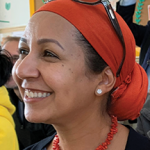
Policy Affiliates
Safaa El-Kogali
Manager, Education Practice, Eastern and Southern Africa,...

Speakers
Hossam Badrawi
Badrawi Foundation for Education and Development

Research Fellows
Adel Ben Youssef
Professor of Economics, University Côte d'Azur

Research Fellows
Ahmed Elsayed
Associate Professor, Economics Department and Executive Director...
Videos
Dialogues on the Future of Work in the Global South: Building narratives from The Middle East and North Africa - Technology Panel
Date
26/07/2021
Location
Online Webinar
Time
From 5:00 pm To 7:00 pm
About the technology panel
Overall goal
To understand to what extent technological change is expected to happen in the region and what are the foreseeable effects on jobs.
Specific questions
- Are developing countries at risk of falling behind in the fourth industrial revolution?
- Has the region developed the conditions to innovate systematically and quickly absorb technologies?
- Which are the most promising technologies in the region in terms of productivity, growth, and job creation?
- What is the technological and economic feasibility of these technologies?
- Are these technologies being implemented? What are the obstacles?
- What are the risks to workers associated with these technologies?
- To what extent are jobs in the developing world at risk of being substituted by technology?
- What are potential approaches to promote these technologies while mitigating their risks?
Speakers

Senior Associates
Mustapha Nabli
North Africa Bureau of Economic Studies (NABES)

Speakers
Farah Choucair
Project Manager, Arab Development Portal (ADP), UNDP

Senior Associates
Shahrokh Fardoust
Research Professor, Global Research Institute, College of...

Authors
Jaime de Melo
Professor Emeritus, University of Geneva

Speakers
Authors
Sherif Kamel
Professor of Management and Dean of the...
Videos
Agenda
Dialogues on the Future of Work in the Global South: Building narratives from The Middle East and North Africa - Labor Market Institutions Panel
Date
27/07/2021
Location
Online Webinar
Time
From 3:00 pm To 5:00 pm
Overall goal
To understand to what extent the gig economy and platform-based jobs bring opportunities and risks for workers –particularly those in the informal market–, and how labor market institutions need to innovate to cope with new forms of labor.
Specific questions
- To what extent has the gig economy expanded in your region?
- What is the impact of the gig economy in your region (on job creation, working conditions, business models, etc)?
- What is the meaning of informality amidst the fourth industrial revolution?
- How can technology help reduce or manage informality?
- What are the costs or risks of reducing informality?
- Which institutional reforms or innovations are needed to account for new forms of work?
Speakers
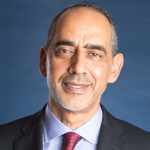
Research Fellows
Tarik Yousef
Senior Fellow, Middle East Council on Global...
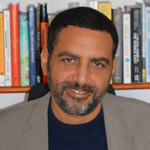
Research Fellows
Mohamed Ali Marouani
Associate Professor of Economics, Sorbonne University
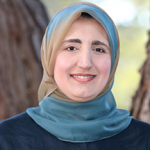
Research Fellows
Shireen AlAzzawi
Teaching Professor, Economics Department, Leavey School of...

Research Fellows
Hassan Aly
Dean, Business School, Nile University
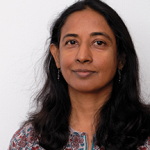
Speakers
Uma Rani
Senior Economist, Research Department of the International...
Videos
Dialogues on the Future of Work in the Global South: Building narratives from The Middle East and North Africa - Demography and Labor Market Panel
Date
27/07/2021
Location
Online Webinar
Time
From 5:00 pm To 7:00 pm
Overall goal
To understand the extent to which the labor markets in the region are prepared to absorb the incoming labor force in the following decades and the impact of demographic trends on incentives to invest in technology.
Specific questions
- How do you expect the demographic transition to impact the future labor markets in your region?
- Is the labor market prepared to absorb the incoming labor force?
- What are potential strategies to prepare the economic system to cope with the expected job creation needs?
- Are there skill mismatches in your region and will there be any in the future?
- What are the incentives for job automation in your region amidst demographic trends?
Speakers

Senior Associates
Zafiris Tzannatos
Senior Fellow, Jordan Strategy Forum, Amman and...

Research Fellows
Nader Kabbani
Senior Fellow and Director of Research, Middle...
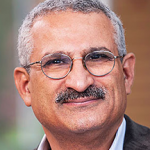
Research Fellows
Ragui Assaad
Professor and Freeman Chair for International Economic...

Authors
Caroline Krafft
Associate Professor, Humphrey School of Public Affairs,...

Research Fellows
Ghada Barsoum
Associate Professor and Chair of the Department...
Videos
Agenda
Dialogues on the Future of Work in the Global South: Building narratives from the Middle East and North Africa - Inequality and Labor Market Panel
Date
28/07/2021
Location
Online Webinar
Time
From 3:00 pm To 5:00 pm
About the inequality and labor market panel
Overall goal
To understand to what extent structural inequalities embedded in the region affect the ability of workers and the economic structure to absorb and implement technological change.
Specific questions
- What is the magnitude of the digital divide, and how is it explained?
- What is the role of the gender divide?
- What is the role of the race and ethnic divides?
- What is the role of the age divide?
- Who are the most vulnerable groups in terms of access to technological equipment and skills?
- What is the effect of these gaps on the region’s ability to absorb emerging technology?
- Have wage inequality patterns changed in your region? Did technology play a role in this?
- What can be done to close these gaps?
Speakers
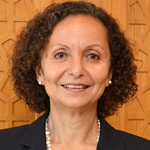
Research Fellows
Noha El-Mikawy
Dean, School of Global Affairs and Public...

Research Fellows
Adel Ben Youssef
Professor of Economics, University Côte d'Azur

Authors
Vladimir Hlasny
Economic Affairs Officer, UN Economic and Social...

Research Fellows
Paul Makdissi
Professor of Economics, University of Ottawa

Speakers
Authors
Shahid Yusuf
Chief Economist, Growth Dialogue, George Washington University

